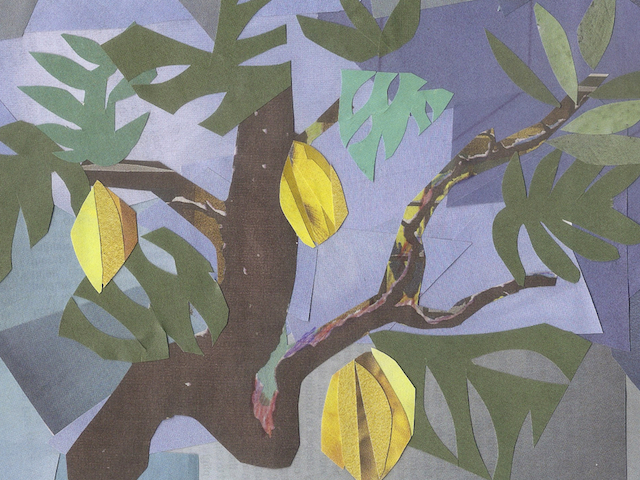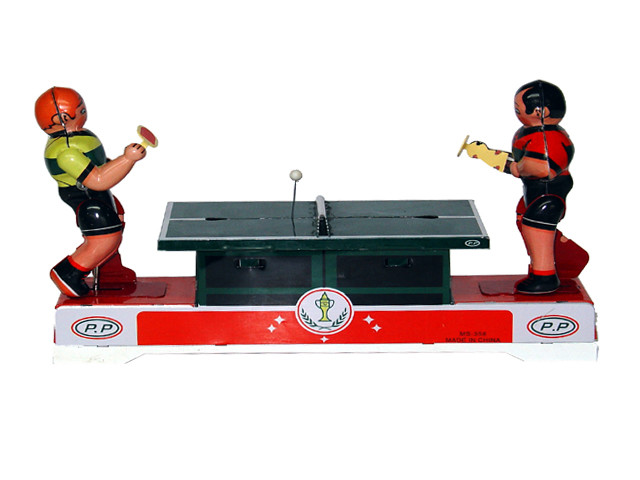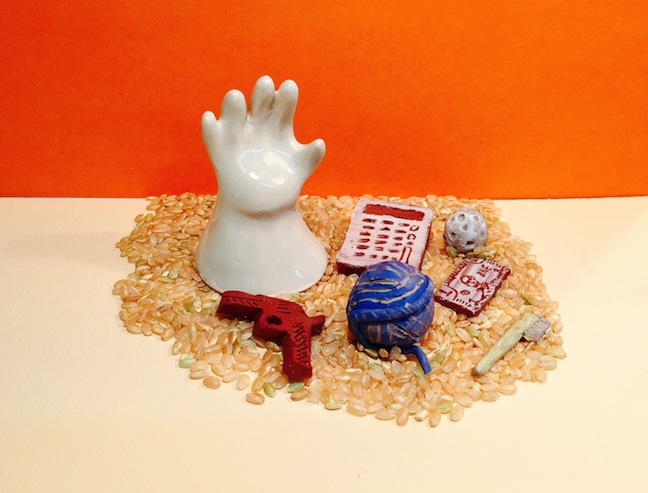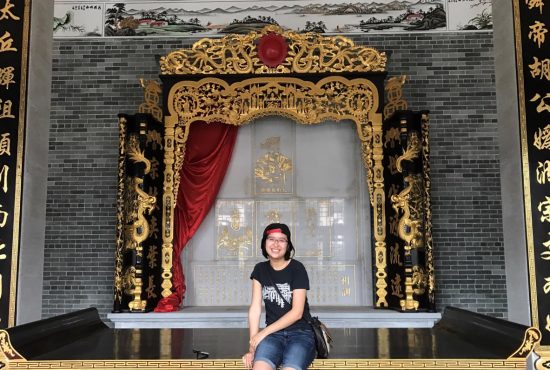‘Because she had saved my sister once, when my mother tried to pound out the wildness from my sister’s body with both words and sticks, no one ever came to rescue her.’

December 25, 2015
She never cried. It did not matter how hard my mother hit her. Not even the nimble branch of the starfruit tree, which makes one jump at the slightest touch, could extract a whimper from her. Instead, my youngest sister would stare at my mother with bewildered eyes, like someone who had been rudely woken from her sleep—slightly annoyed, a little confused, but mostly just wanting to go back to the life before the incident.
My maternal grandmother, nani, used to call my youngest sister tuntuni, a tiny bird that couldn’t seem to stay in one place. This nickname was fitting for my sister since it neatly captured her unquenchable desire for motion. Adventures, or rather mishaps, followed her everywhere: she spilled glasses of water almost every meal, got poked in the eye by my cousins, chipped a tooth while playing hide-and-seek, fractured a limb during my aunt’s wedding, and burned her chin with the kerosene lamp.
But that burn did nothing to diminish my youngest sister’s beauty. She had the most beautiful skin out of us three sisters—she inherited it from my mother. My sister’s skin resembled the color of katcha holud, raw turmeric. Older women would cluck their tongue and touch her skin with envy. “Ish, gayer rong katcha holuder moton,” they would say. My sister paid no attention to these compliments. She preferred running around in the yard, and I sometimes tagged along with her. But I could feel my mother’s eyes bore into my back. So, I always turned back, staying close by my mother’s side. I watched my sister though. I remember that day when she dared to climb a betel nut tree. She didn’t stop until all I could see was a tiny silhouette of a seven-year-old girl, hanging there like an intoxicating betel nut, almost ripe for devouring.
Though I found her tantalizing, my sister’s unruly nature infuriated my mother. She was already a burden to the family—she was my mother’s third and youngest daughter. Three daughters meant three extra mouths to feed, three marriages to save money for. It was already hard enough for us to get by. We rented a house with a tin roof and a crack that ran through the living room wall. It was the 1990’s in Bangladesh. Unemployed men sipped teas from the store at the corner of the busy intersection by our house. My father sat on the hard benches with those men many times as he moved in and out of jobs. There was never enough money, so my mother’s brow would furrow when she stared at her three daughters.
My mother had hoped and prayed for a male child, but one girl after another kept slipping out of her. She had gone to imams and fortune tellers, had worn tabiz, had prayed nofol namaaz, had fasted almost every Friday, had visited shrines in Sylhet to rub the tombstones of different piri, and had drunk holy water from Zamzam imported from Mecca in plastic containers.
But her womb kept failing her: no sons.
My mother had to make up for her lack in other ways. She stooped over cooking pots on a stove, over a stack of dishes in need of wash by the tube well, over clothes that needed hemming, and over a prayer mat. This became her way of paying back for her failure. For her penitence, my paternal grandmother, dadi, would even throw compliments my mother’s direction, the praises clanging like shelled peas on a steel bowl.
But my mother couldn’t depend on my dadi’s approval. Whenever my dadi feared that she wouldn’t get the last word in, she would remind my mother that she couldn’t produce a grandson. Then, she tapped her cane a few times, letting my mother know that the conversation was over. My dadi was a tough woman—her face was settled in a permanent scowl. Nothing my mother did was ever good enough. The lentil soup always managed to have too much salt; my mother always managed to show too much skin; and dust always managed to settle too comfortably in our house. My youngest sister was the worst of my mother’s trouble.
My sister running around like a tomboy threatened to taint my mother’s hard-earned reputation. While entertaining the occasional visitors in the living room, my mother had to stomach their insincere concerns about my sister in between sips of milk tea. The female guests would put down their teacups, shake their head slightly, and report to my mother about seeing my sister on top of our six-foot-high wall a week ago.
“Rahima, that child of yours—you need to do something before it is too late,” they urged my mother while munching on narikel-er pitha. My mother could barely make out their words over the krr krr of the shredded coconuts hissing under their teeth.
“How will you get her married?”
One woman reached for a toast biscuit, her red blouse groaning under the weight of her breasts.
“Yes,” another jumped in, fixing the pleats of her sari. “She is not a child anymore. All that running around will cause nothing but trouble for you.”
“They are right, you know. You are her mother—teach her, guide her,” the third said.
My mother would merely smile at these warnings. Her glance would rest on the starfruit tree, visible from the grille window in the room, which contained the endless supply to undertake this task.
When Konkon Auntie came to stay over at our house for a week that summer, my mother confided in her about this dilemma. Konkon Auntie was my mother’s older sister; they were two years apart and extremely close to each other. One day Konkon Auntie sat on a wooden stool, my mother’s hair in her hands, running a comb through the waist-length curls that moved like waves down my mother’s back. Both of them chewed on betel leaf cones filled with betel nut slices, chuun and jorda. Through her chewing my mother told Konkon Auntie about my sister—about her legs that wouldn’t stop moving, about her body that had too much energy inside it. Then she told Konkon Auntie about her sleepless nights nursing the tension headaches from worrying about my sister.
Konkon Auntie’s hands stopped moving for a beat before they resumed stroking my mother’s hair. “What’s wrong with having some energy in her body?” she said.
“Are, tor to shudhu pola ache…” My mother couldn’t continue. She cleared her throat of an old hurt lodged deep inside her. You only have sons. An accusation hurled at her sister. A reminder of her own defeat.
The gold plate where whole betel nuts laid quietly caught the light and glistened.
“You tried everything.” Konkon Auntie patted my mother. “You can’t blame yourself anymore. It’s not your fault, Nahima.”
Three papaya trees swayed in the backyard, carrying a throng of papayas like ornaments around their neck.
“She takes after her father,” my mother said.
“She has your skin,” Konkon Auntie said.
“She has my skin,” my mother murmured, each word rested heavily like rocks on her tongue before sliding off.
“And your spirit,” Konkon Auntie added.
“Are you saying that it’s my fault?” My mother moved her body away from my aunt.
“Heemu…” Konkon Auntie still called my mother by her nickname that no one remembered, a leftover from my mother’s childhood. “She is a special one. Don’t crush her.”
Betel leaves. Betel nuts. Chuun. Jorda. They each took turn spitting out the juice from the side of their mouth, marking the earth with their presence. Black lines settled in the gaps between their teeth.
“Marriage proposals for the older one are starting to come now,” my mother whispered. “What will people say? That I can’t even raise my daughters properly?”
The betel leaf holder rattled on my mother’s lap.
They watched the night sky swallow the sun and sprinkle some stars in its place. The thin crescent-shaped moon shone down meekly from one spot.
Konkon Auntie didn’t say anything for a long time. She knew my mother’s stubborn ways. After a long pause she said, “Be careful…she is still a child.”
Soon Konkon Auntie had to leave. Her words stayed with my mother, but they weren’t enough to melt my mother’s resolve. My mother had already made up her mind.
My sister needed rescuing—from herself.
While my mother thought of ways to carry out her plan, my sister went about her usual ways. She sank her teeth into a ripe guava plucked freshly from the tree. She fancied snacks that fit snugly in one palm. This allowed her other hand to be free for exciting activities like pinching ants and watching them dance in pain. But amoloki—a tiny bitter fruit—was an exception to this rule, requiring absolute attention for its enjoyment. Once ripe, these lemon-green delicacies fell to the ground with a gentle shake of the tree. Picking up the end of her dress, my sister gathered these fallen fruits in her pouch. When satisfied with the quantity, she removed the stem of one, rolled it around her tongue for a while, and then pressed down on the fruit until its inner seed gently collapsed under pressure while releasing a bitter taste.
Those amoloki fruits’ fate soon resembled her own as my mother struggled to bring my sister back from her ways.
This was not the first time my mother wrestled with fate on my sister’s behalf. “Your mother had brought your sister back from the dead once,” my nani whispered to me one of those hot summer nights that were good for tales of the past. The full moon lit up the whole courtyard that night, and wind whistled through the open space. Tulsi plants shivered in the wind, looking so harmless. I knew better. Whenever my sisters and I got sick, my mother pounded the bitter leaves of tulsi, mixed it with rock sugar or crumbling jaggery and rammed down our throats spoonsful of this concoction. I tore my gaze away from the plants and returned back to my grandmother’s story. I sat beside her on a jute mat, the hard ground pressing against it. My nani’s eyes gleamed.
She unwound the tale like a spool of yarn.
My sister was a sickly child when she was young. She nearly died from häm, measles, that one year when the country was ravaged by a flood like it seemed to be every year. The rickshaw driver refused to take my mother to a hospital because it was too far away even though hunger sat on his stomach, grumbling. He couldn’t risk the journey. It was too dangerous. The treacherous water rose around them, swallowing the silver spokes of the rickshaw’s wheels. He took her as far as he could. Then my mother was on her own. From there on, she waded through knee-deep water, carrying a tiny baby in her arms. My sister was nothing but flesh and bones. Small red spots broke out on her skin; a high fever fed on her body. My mother moved from one doctor to another in a daze, emptiness settling inside her eyes. My father was too busy puffing away at cigarettes to care. My mother, on the other hand, frantically searched for a remedy to keep my sister alive. A doctor finally prescribed a homeopathic treatment that breathed life into my sister’s body.
My mother brought my sister back from the dead. I marveled at this fact, wondering whether my mother wished she had let my sister die when the chance came.
Because she had saved my sister once, when my mother tried to pound out the wildness from my sister’s body with both words and sticks, no one ever came to rescue her. I could hear the thush thush thush of the thin branch of a starfruit tree jumping on my sister’s skin.
At first, my sister stared at my mother like she had done many times before. Her eyes would be trained at my mother’s flushed face, sweat dripping down her body and staining her blouse a few shades brighter. But my mother and those branches kept at it, undeterred. They were determined to stamp out her restlessness, her rebellious streak. I knew it was all over the day my sister let out a piercing wail that made my mother’s hand freeze in mid-air.
It was soon after that things began to change.
Around this time, my parents sent me away at a madrasa with my cousins to memorize the Qu’ran. I returned home for a visit after a few months and noticed that my youngest sister no longer ran around as she once did. Her hands did not bleed from pulling on a kite string anymore. She no longer chased birds to catch the sound of flapping wings ringing out like gunshots. Instead, my sister remained inside the kitchen more often, watching the flames lick a pot hungrily. Soon she graduated out of her frocks and her new body filled into selwar kameez, the duppatta draped over her carefully as she sat with my mother and her guests. I sat with them too.
The starfruit tree was still visible from the living room window.
The amoloki fruits still fell to the ground but in a whisper.
I sometimes caught myself staring at my youngest sister, trying to find the child locked in her golden body.



